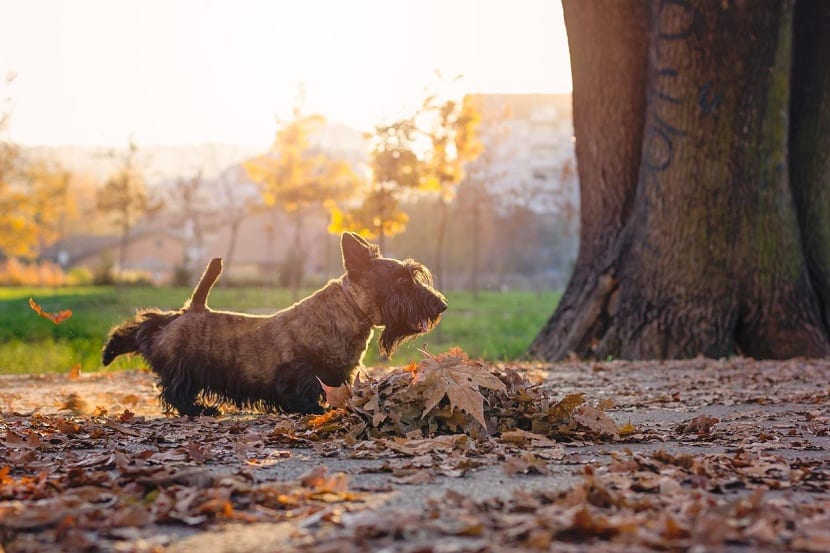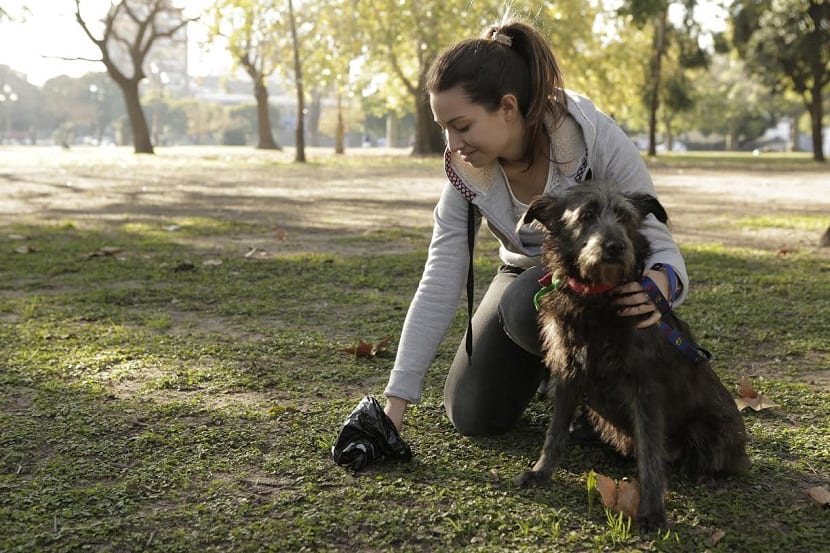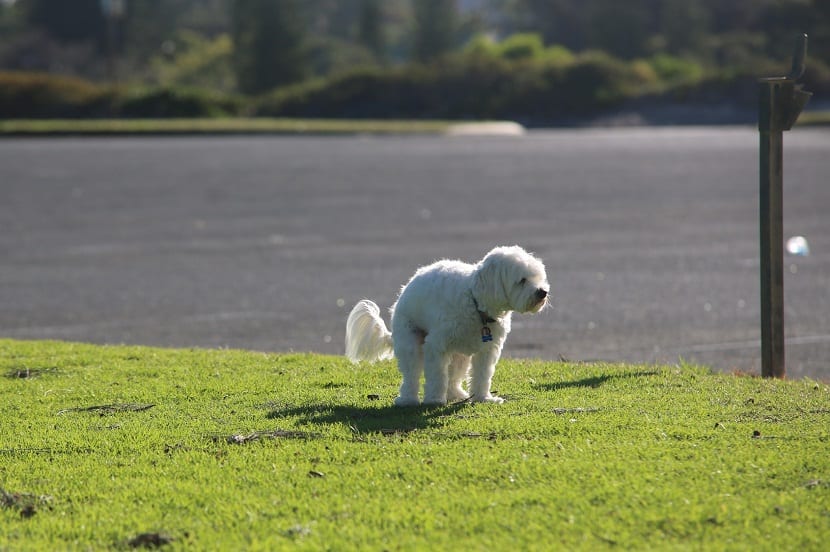
Dogs have been more flexible in their diet, which went from being absolutely carnivorous to accepting and tolerating other types of food and they have gone from providing rescue, surveillance, security and hunting services to being excellent therapy and companionship.
However, nature moves its changes slowly and the wild origin and genetic inclination of each breed cannot be forgotten. Still, many people do not do enough research on their pets and this can have consequences.
Presence of blood in the dog's stool

It is necessary for dog owners to be very clear what are the needs and requirements of each breed and everything related to care, hygiene and food.
Years of domestication have caused this beautiful animal depend heavily on humans for subsistence and quality of lifeJust as humans have depended on the dog and continue to depend on it to meet different needs.
When you have pets it is very important to be aware of their eating and defecation habits and routines, especially the shape and color of the stool provide very important information about the diet and the health of the dog.
One of the main obligations of the owners is to ensure the cleanliness of the space where the pet moves and collect the excrement. This responsibility makes it easier for owners to become familiar with the characteristics of your pet's feces and they can prevent health problems if they notice any abnormality.
Among the aspects that can turn on the most alarms in the owners regarding canine defecation is that the stool contains blood.
Notice that the fecal remains come stained bright red with liquid texture It is a sign that something is not normal in the dog's health. However, the intense red color shows that the possible lesion is found after the animal has digested, that is, from the intestine, colon and rectum.
If the stool is of a color dark red almost black, indicates that the blood was digested and the problem is found before the dog's stomach.
The almost black color in the digested blood stool makes it difficult to detect the hemorrhage, therefore it is recommended to collect them with a white paper to be able to determine the colors with greater precision. It is also possible that the blood in the stool is accompanied by a more or less intense level of mucus in which case they represent another type of health condition.
Presence of blood in canine feces due to hematochezia
When fresh blood is present in the feces of dogs with or without mucus, it is known as hematochezia and can have a wide variety of causes.
Regardless of the reasons, it is always important to take the pet to a veterinary consultation to confirm exactly the origin of the problem. Among the possible diagnoses that the results may give are:
Presence of parasites
Dogs and especially puppies are susceptible to parasites like all living things. The most common are protozoa, nematodes, hookworms, and whipworms.
Parvo virus or parvovirus
Among the main vaccines that should be given to puppies is parvo virosis. If the pet contracts it, it will not only defecate with blood, it will also have diarrhea with risk of dehydration and possible performance.
The mortality of this disease makes it necessary to be very attentive to vaccines and symptoms.
feeding
The nutritional habits of dogs are very specific and must be strictly adhered to.
If they are fed with a feed it must be of quality and provide the nutrients required for development and activities of the animal. If the brand is changed, it should be done gradually to avoid digestive problems that lead to bloody stools.
Providing recommended amounts of fiber that prevent constipation is important as possibly prevents causes of blood in stool. Finally, you must be attentive to things that dogs put in their mouths and eat that can pierce their intestines or rectum when defecating, such as branches or plastic toys.
Hemorrhagic gastroenteritis
Although the causes of this disease in dogs are not known for sure, some suffer from it and a symptom is bloody defecation. You should visit the veterinarian to indicate the treatment to follow.
Rectal polyps
These lesions occur in the canine anus and can be benign or malignant. In both cases must detect in time to take the corresponding measures.
Stress
Dogs are not excluded from this emotional distress and so are its victims. The nervous condition can be triggered by any change in routine of the pet, new habitat or incorporation of other members or pets to the family group.
Presence of blood in dog feces from mane

When blood is present in the almost black dog feces With the appearance of tar and a foul odor, they may be dealing with a case of melena.
This is nothing but digested blood, which is why it is presumed that the causes lie above the digestive system. Possible reasons for this condition are usually:
Pharmaceutical products
The use of non-steroidal anti-inflammatory drugs can cause ulcers in the digestive system of the dogs.
Great care should be taken with the supply of these drugs, as some stain canine feces giving them the appearance of a mane, but it is not blood and the effect wears off when the treatment ends and the pet is stopped.
Poisons
Poisons are often placed in homes to deworm some rodents and care is not taken to protect pets from ingesting them. Rat poison is especially harmful and causes bloody defecation in dogs causing a blood clotting disorder.
Postoperative complications
If the dog is in the surgical recovery period and shows signs of digested blood in the stool, between three and four days after surgery it should be contact the vet immediately.
Lick bleeding wounds

If the dog has a wound he will lick it to get relief. In the process it will digest the blood and therefore defecate with the characteristics of a mane. It is important to review it to rule out this possibility.
Tumor and infections
Dogs can also suffer from cancer, and bleeding from a tumor can show this symptom. It can also be given by bacterial infections such as Clostridium or Campylobacter.
Recommendations
Regardless of the reason or the reason why the dog shows signs of blood in the stool, you should always go to the vet and take the relevant exams.
A laboratory test will clear up any doubts and show the treatment to follow. Equally it is very important to be attentive to the dog's feeding and provide only allowed foods that guarantee good health.
Hello, my dog is a poodle puppy and it has been 2 days that when he poops, he finishes his stool with a little fresh and liquid blood, the rest of the poop is normal. He eats well although I have to force him a little and give him my hand. Otherwise this is normal but of course I am worried, to see if you can help me although I will take him to the vet anyway, thank you.